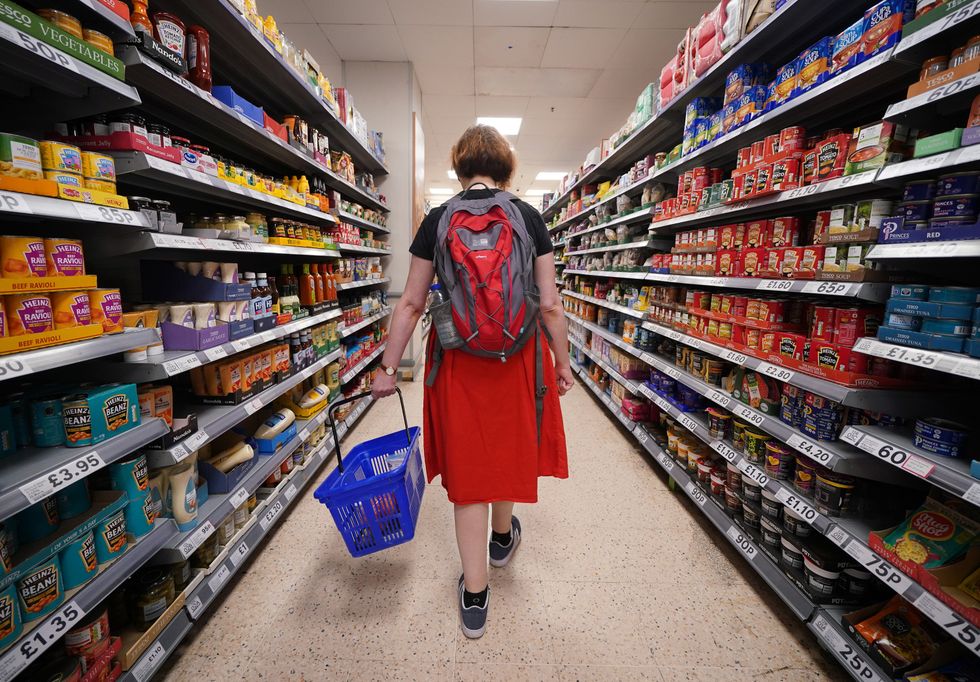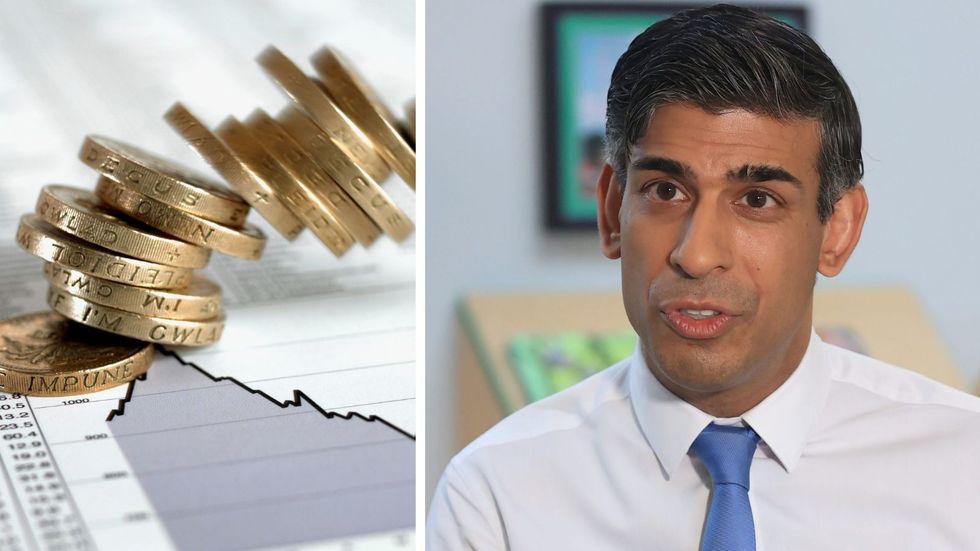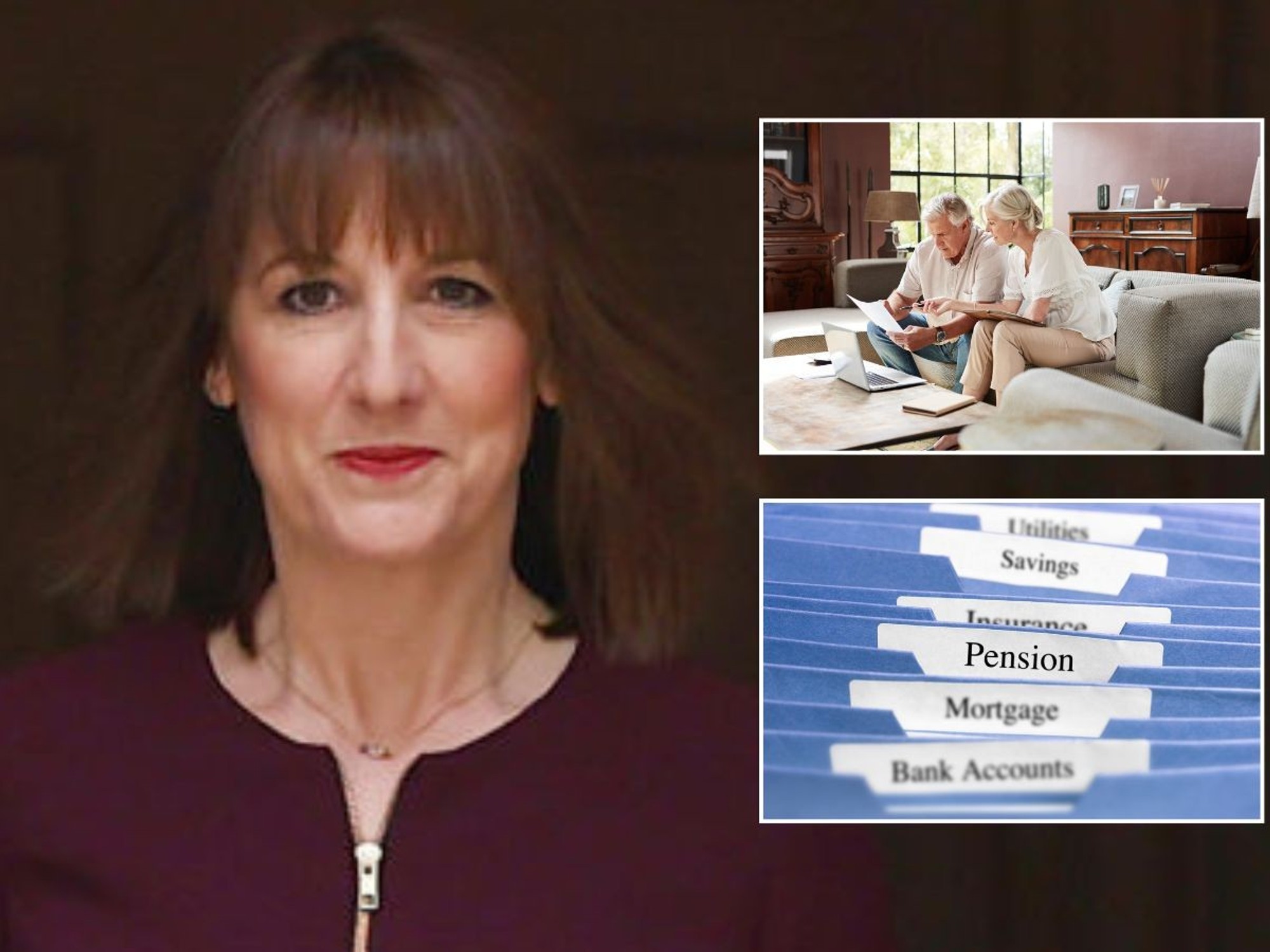UK in recession: Blow for Rishi Sunak after economy shrank 0.3 per cent in final three months of 2023
The UK slipping into recession has predicted to be “short-lived”
Don't Miss
Most Read
Trending on GB News
The UK slipped into recession at the end of 2023, official figures published today show.
The Office for National Statistics (ONS) confirmed the UK economy contracted for the second quarter in a row in the final three months of 2023.
The economy shrank by 0.3 per cent in the final quarter of the year, which followed a decline of 0.1 per cent in the previous three months.
This is the first time the UK has entered recession since the COVID-19 lockdown - the economy plunged into reverse in the first half of 2020.
Do you have a money story you'd like to share? Get in touch by emailing money@gbnews.uk.

The recession will be a 'cause for concern for people whose household finances have already been battered by a barrage of rising bills', an expert warned
PA
Despite the two quarters of negative growth, Chancellor Jeremy Hunt seemed optimistic today, saying there are "signs" the economy is "turning a corner".
He said: “High inflation is the single biggest barrier to growth which is why halving it has been our top priority. While interest rates are high - so the Bank of England can bring inflation down - low growth is not a surprise.
"But there are signs the British economy is turning a corner; forecasters agree that growth will strengthen over the next few years, wages are rising faster than prices, mortgage rates are down and unemployment remains low.
"Although times are still tough for many families, we must stick to the plan – cutting taxes on work and business to build a stronger economy.”
However, shadow chancellor Rachel Reeves said Prime Minister Rishi Sunak's pledge to grow the economy was “in tatters”.
She said: “The Prime Minister can no longer credibly claim that his plan is working or that he has turned the corner on more than 14 years of economic decline under the Conservatives that has left Britain worse off.
“This is Rishi Sunak’s recession and the news will be deeply worrying for families and business across Britain.”
What does recession mean?
Today's figures mark a technical recession, which is defined as two or more quarters in a row of falling GDP.
Alice Haine, Personal Finance Analyst at Bestinvest by Evelyn Partners, said: "A recession has repercussions for people’s finances as a weaker economy can cause earnings to stagnate and redundancies to rise as businesses focus on cutting costs rather than investing in expansion and new hires.
"A downturn, albeit mild, will certainly be a cause for concern for people whose household finances have already been battered by a barrage of rising bills over the past two years.
"The weak growth data will pile pressure on the Bank of England to cut interest rates sooner rather than later to bolster the economy, which has been heavily impacted by high inflation and still-high borrowing costs."
LATEST DEVELOPMENTS:

The UK has slipped into recession
PA | GETTY
GB News' Business and Economics Editor Liam Halligan said it was "not good news" for the Government, but agreed the economy "was on the turn".
He added: "It's the shallowest, almost, recession that you can possibly imagine."
Mr Halligan warned this is the first non-Covid recession in 15 years.
Nicholas Hyett, investment analyst at Wealth Club, said: "While recession is clearly bad news for the UK economy, it's worth bearing in mind that, as recessions go, this is still a very mild one, and might yet get revised out of existence altogether.
"Whether today's recession transforms into something that's remembered outside the pages of an economic history textbook remains to be seen."









